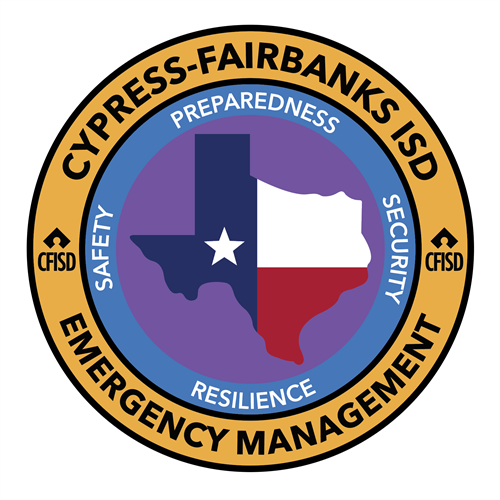- Cypress-Fairbanks Independent School District
- Hurricane Season (June 1 - Nov. 30)
Safety
Page Navigation
HURRICANE SEASON (JUNE 1 - NOV. 30)
-
Hurricanes can cause catastrophic damage to coastlines and several hundred miles inland. Hurricanes and tropical storms also spawn tornadoes, create storm surges along the coast, and cause power and utility outages.
CFISD’s Office of Emergency Management recommends several safety tips in the event of a possible hurricane. When a hurricane warning is issued by the National Weather Service and the coastal area is threatened, you should:
- Monitor your local TV and radio stations.
- Fuel your vehicles and generators
- Check your disaster supply kit.
- Cover windows with plywood.
- Bring in all furniture, toys and any other objects that could become missiles.

- Moor boats to a safe and secure place.
- Take pictures of property and contents for insurance purposes.
- Evacuate immediately, if advised.
If you stay in your home during the hurricane and are not in a flood prone area:
- Fill bathtubs and all available containers with water.
- Turn off utilities, if requested.
- Remain indoors in a closet, bathroom or hallway on the lower level of your house, away from windows.
- Cover yourself and family members with a mattress or a dining room table to protect yourself from falling debris.
EVACUATION TIPS
- If you evacuate, take your disaster supply kit with you.
- During hurricane season (June 1 – November 30), keep at least half a tank of gas in your car at all times.
- Rethink your needs every year and update your kit as your household changes.
- To learn how you can be a part of an improved evacuation, please visit www.readyharris.org
For more information on Hurricane Preparedness and to receive CFISD alerts, please visit:
- CFISD SchoolMessenger
- Harris County Office of Homeland Security Emergency Management
- FEMA Hurricane Preparedness
- National Flood Insurance Program (NFIP)
- Zip Zone Evacuation Maps

